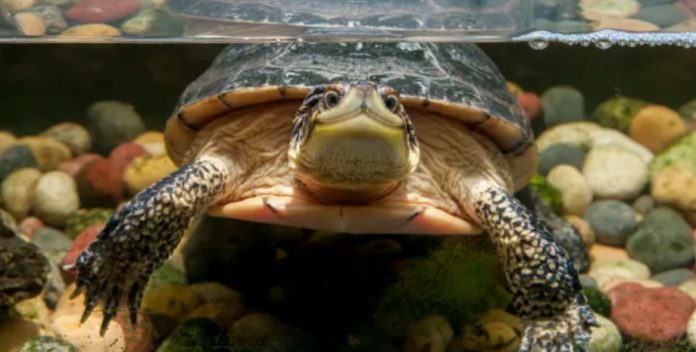While most aquatic animals have gills and get oxygen directly from the water, others - such as mammals or reptiles - are forced to hold breathing and periodically float to the surface. However, some of them are able to spend a record for a long time without access to the air.
According to Biologist John Spayer from Plymouth University (United Kingdom), there are some freshwater turtles in absolute record holders among animals who breathe in the lungs. For example, an American marsh turtle (Emydoidea Blattingii) is able to stay underwater for several months, being in a state of winter hibernation. Turtles are cold -blooded, and their metabolism is strongly slowed in cold water. This allows them to spend a minimum of energy and oxygen. Some turtles, by the way, can absorb oxygen through the anus - an interesting biological adaptation. Another record holder is the main sea turtle (Careta Caretata), which can remain underwater without air for up to 600 minutes (10 hours). In the mammalian world, the unconditional record holder is the Dzoboryli Kuvier (zipius cavirostris) is a kind of deep -water whales. Their maximum breathing retention reached 3.5 hours. They also have high rates: sperm whales - up to 2 hours underwater. Marine elephants (Mirounga) - almost 2 hours, especially during the avoidance of predators. These marine mammals are able to slow down the heartbeat and limit blood circulation to save oxygen, as well as produce energy in anaerobic (oxygen) mode.
The Australian freshwater crocodile (Crocodylus Johnstoni) holds the striking bar - up to 400 minutes (6.5 hours) underwater without breathing. Key factors that affect the duration of respiratory delay: body size, larger animals have more oxygen reserve. Body temperature: cold -blooded animals can significantly reduce oxygen consumption. Physiology: ability to anaerobic metabolism and reduce heart rate. Environment conditions: danger, cold, wintering and more.
Although marine mammals, such as whales and sea elephants, are unconditional record holders among warm-blooded animals, real respiratory retention champions are cold-blooded sea turtles that can do without air up to 10 hours and sometimes months under ice.


